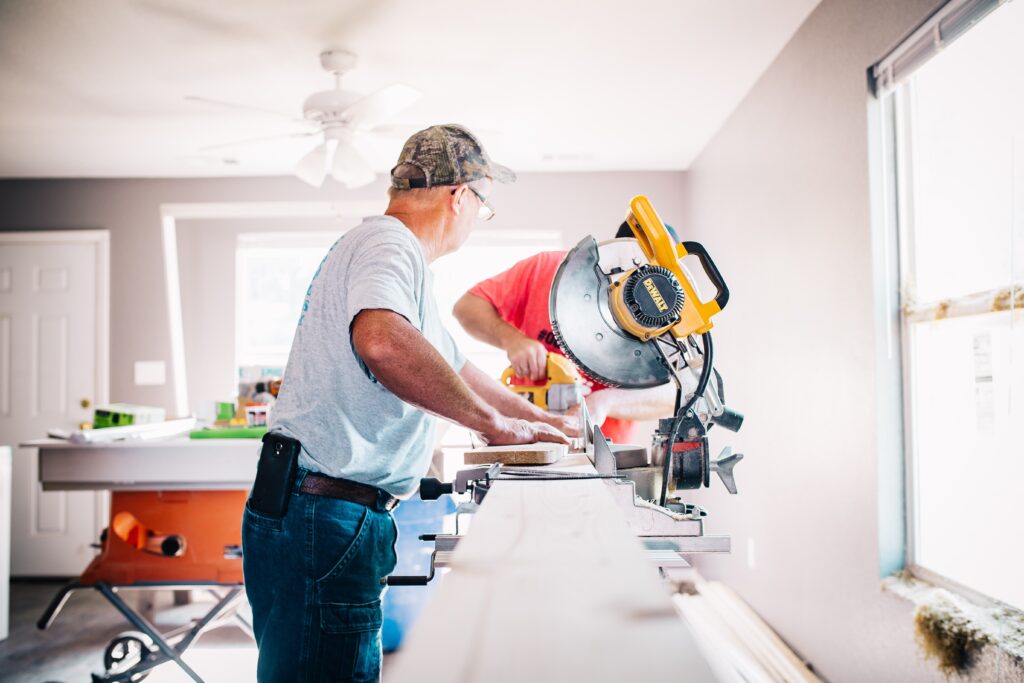
Americans spent $420 billion on home remodeling in 2020. The pandemic changed how we use our homes—perhaps permanently—and kicked off a remodeling boom the is ongoing. Improving a home’s functionality and livability was the top motivation for remodeling, according to the 2022 Remodeling Impact Report, a joint study from the National Association of REALTORS® and the National Association of the Remodeling Industry. An added benefit of home remodeling is the potential increase in value when it comes time to lease or sell.
Whatever your motivation for remodeling, don’t let common renovation mistakes derail your home makeover. Navigate the remodeling process with ease by learning from experts how to create the ideal home for your needs (or to prepare a home for lease or sale). Consider these critical home remodeling Dos and Don’ts.
DO research building codes.
Before making plans to remodel, find out if a permit is required. Home renovation projects that involve structural changes or new construction typically require a permit, whereas cosmetic improvements, e.g., installing new flooring or kitchen cabinets, do not. A contractor can help manage the permitting process. If you’re doing the work yourself, check with your city’s building department before beginning any work. Non-compliant remodeling may make selling your property difficult and result in hefty fines.
DON’T focus only on cosmetic updates.
Cosmetic upgrades can bring great joy (imagine that gleaming new quartz countertop). However, don’t overlook the importance of basic maintenance projects that keep a home in tip-top shape and ready to sell, such as gutters, HVAC systems, etc. Also, remember that unless you plan to live in the home for a long time, choose projects (and designs) with broad appeal. For example, converting your garage into a home gym may suit your lifestyle, but potential buyers may prefer having a place to put their car.
DO purchase extra building materials.
When purchasing renovation materials, consider buying more than you think you’ll need—especially with flooring or other materials where different batches of stock may differ in appearance. You’ll have extra to choose from if any pieces are damaged or defective (or you need to replace a section). If you’re working with a contractor, consider having them purchase your materials. They may get a professional, but more importantly, any problems with materials will be their responsibility—not yours.
DON’T skip the planning and preparation steps of the project.
Once you’ve decided on a renovation project, it’s natural to want to get started right away. Among the biggest mistakes homeowners make when renovating is skipping (or rushing) the planning and prep work. Every successful renovation project begins with a plan that outlines all work, cost (see next “Don’t”), timing and related logistics. Will a critical room become unavailable during the project? Do you have a storage plan for items that must be moved temporarily? Do any utilities need to be shut off? Have all materials been ordered (and received!)? Will your project be disruptive to neighbors? Have you identified and confirmed licensed specialists for work that requires it? Does your timeline have a sufficient cushion if things get delayed? These are just a few considerations to address before starting a project. Look for online renovation project planning tools to help you organize or hire a general contractor to manage the project. Create a timeline to anticipate any calendar concerns, e.g., planned family visits. Home renovation projects often take longer than expected, especially if you do it yourself.
DO consider the current space, its purpose and surroundings.
Your dream project may not be practical (or wise) due to structural, space or aesthetic surroundings. An ultra-modern sunroom addition to a Victorian wrap-around porch can be an eyesore that diminishes the resell value. Major renovations should complement the original structure. Also, consider functionality. For example, exceptionally high (or low) ceilings may impact lighting choices. The presence of small children or pets is another factor to consider.
DON’T underestimate the cost.
Setting a budget is an essential part of your planning. Even the most modest home renovation projects experience “cost creep.” Do your research and set a budget, but add a 10% cushion to accommodate unexpected costs. Be mindful not to overspend on small, aesthetic items. Those custom wood floor vents may be beautiful but can chew up a significant chunk of your budget. Shop around for big-ticket items and, when possible, plan to take advantage of traditional sale months for items like appliances. For multi-faceted renovation projects, list and prioritize your goals and each independent project component. If you need to cut costs during the remodel, you’re prepared to decide what can wait.
DO consider resell value.
We’ve previously referenced resell (or leasing) value, but it’s worth reiterating. Unexpected occurrences, such as a job relocation, can cause you to sell or lease your home. Before undertaking any renovation project, consider current trends but avoid undertaking a project that is so unique it will offer little appeal to others or quickly “date” your home. If you can anticipate a timeline for selling your home, opt for projects for which you will most likely recoup (or more) your investment. Bath and kitchen upgrades have traditionally added value to a home. In the 2022 Remodeling Impact Report, interior renovations with some of the highest recovery at the point of sale included refinished or new hardwood flooring and upgrading a home’s insulation. Among exterior renovations, replacing the roof and garage doors showed a recovery rate of 100%. A REALTOR® can advise on which projects currently prove to be most lucrative.
Bonus: DO consider hiring a general contractor to make your project successful.
No matter how handy you are, home renovation projects can be time-consuming and frustrating unless you can dedicate 100% of your time. Multi-faceted projects may require different specialties (plumbing, drywalling, electrical), some of which may require a license to meet local building codes. A general contractor can manage all aspects of your project—bringing in the right person to do the work. Shop around for a good general contractor, ask lots of questions and get at least two bids. Confirm licenses and insurance, and don’t automatically go with the lowest-cost offer, especially if the bid is significantly lower than other quotes. This may (but not always) indicate lower-quality products or poor artisanship. Read reviews, ask for references and request examples of previous work. Don’t discount a “fit” in work styles and enthusiasm for your vision. With big projects, the contractor will be in your life for a while, so you want to be comfortable with the person. Be sure to get all commitments in writing.
At GNP Realty, our general contracting team understands the importance of achieving your remodeling goals—whether by helping you realize your dream home or preparing a property for sale or lease. We can help you maximize your resources using our in-house team of specialists, helping ensure the project is completed on time and within budget.
GNP Realty’s in-house family of diversified companies provides our clients with full-service strategy and hands-on support for all your real estate needs. From brokerage and management to construction and maintenance, we tailor our commercial and residential services to help you achieve your goals as a property owner or investor.







